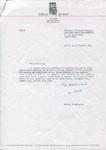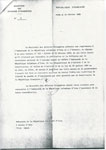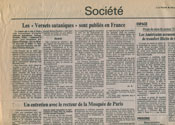The case of the Satanic Verses
A well-known Indo-British novelist, Salman Rushdie, wrote The Satanic Verses (1988), the last tome of a trilogy whose subject is the identity born of exile, and sharing oneself between several cultures.
What we can call ‘the Rushdie affair’, soon to become international, began in February 1989 when the Iranian rulers denounced the novel as blasphemous and called for the death of the writer and his publishers.
Pronounced in Iran, diffused to the Islamic world and the West, this campaign was based on the fundamentalists’ desire to take control of moderate currents.
Neither the theological nor the political reception of The Satanic Verses was identical throughout the Muslim world.
In England, the ghettoization of the immigrant community served as a sounding board.
In France, publisher Christian Bourgois had already commissioned the translation of The Satanic Verses when the affair hit the headlines.
At first, given the ‘gravity of the situation’ he suspended publication, as did some other European publishers.
Bourgois was supported by several newspapers and colleagues. Individual Muslims and Muslim associations tried to have the book seized for offending their religious convictions. For the judges, the fictional nature of the The Satanic Verses was irrefutable and although certain passages may offend a believer, ‘no one is obliged to read a book’.
When the book was published in France, in the fall of 1989, Christian Bourgois, following the recommendations of the court, limited publicity around the novel.










